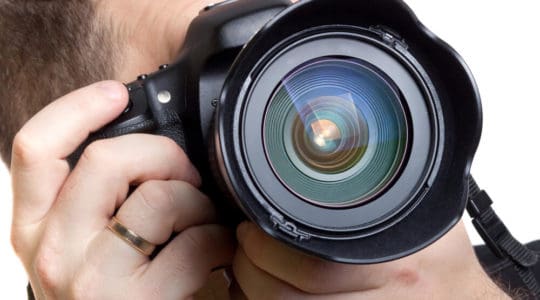
Photography Laws in Texas: When Taking Pictures Becomes a Crime
- June 1, 2016
- The Law Office of Greg Tsioros
- Comments Off on Photography Laws in Texas: When Taking Pictures Becomes a Crime
Improper Photography in Texas
Everywhere you go these days, people are taking pictures in public. Smart phones and digital cameras give nearly everyone constant access to high-definition recording devices. Most of the time, there is nothing wrong with snapping a quick photo of a landmark or some interesting scenery.
However, taking pictures of other people without their permission may be crossing the line. Until recently, it was generally considered legal to photograph nearly anything in a public place. Texas laws have changed recently to counteract the growing problem of unwanted, voyeuristic public photography. Under the new law, a person who takes an inappropriate picture of someone else may find themselves dealing with a court summons and a criminal record.
What Are the Photography Laws in Texas?
Chapter 21.15 of the Texas Penal Code provides the details of public recording laws in Texas. Until recently, Texas used the term “improper photography” to describe illegal recording in public. After the Supreme Court decided that this law had the potential to violate the 1st Amendment rights of Texas citizens, the law was changed.
Chapter 21.15 of the Penal Code now refers to invasive visual recording. It has a slightly different focus. While the old improper photography law focused on photos taken in order to gratify the sexual desire of any person, the new law focuses on:
- Photographing or recording the intimate areas or genitals of another person
- Without that person’s consent and in order to gratify sexual desire
Both laws outlawed non-consensual photography in bathrooms and changing rooms as well. The new law places a strict focus on public photography that is done for lewd or indecent purposes.
Have you been accused of invasive visual recording?
Contact attorney Greg Tsioros today »
Legal Penalties
Getting charged with an invasive visual recording violation in Texas is a big deal. This new law is designed to aggressively penalize anyone who takes inappropriate videos or photos in a public place. A first time conviction for this offense can lead to:
- Conviction on a state jail felony charge
- Incarceration in a state jail facility for 180 days or up to two years
- A fine of up to $10,000
In some cases, a person who is found guilty of this offense may be issued a restraining order for the people that they photographed. In addition, a person who takes inappropriate photographs of minors or children may face additional scrutiny. A person who is registered as a sex offender may have their probation or parole revoked for getting an invasive visual recording charge.
Recent Cases
The invasive visual recording law took effect in Texas in June 2015. Almost immediately, the law was applied in a case of a Texas man who was taking “upskirt” photos at a large gathering.
In July 2015, a husband and wife who were attending a Fourth of July celebration noticed another guest who was behaving strangely. They observed the man kneeling down and positioning his cell phone to take photos or videos up women’s skirts. They confronted the man, who tried to delete the images from his phone. Police took the man’s phone to search it for evidence.
If evidence is recovered, the man could face months in state prison for taking the illegal photographs.
Legal Defenses
A defense attorney could argue against charges under the new law in a similar fashion as arguments against charges under the older improper photography law. However, the new law is much more specific so the defense arguments would have to be equally precise.
In order to secure a conviction, the prosecution must show that the defendant was taking pictures in order to gratify or arouse sexual desire. The defense attorney could argue that there are not enough pictures to show a pattern of any inappropriate behavior. They could argue that the photos are merely coincidental and were only being taken for normal purposes. If the illicit intent of the defendant cannot be proven by the prosecution’s evidence, the charges may be reduced to a less serious offense.
Have you been charged with invasive visual recording in Texas? If so, you need the strong legal defense of attorney Greg Tsioros. Contact his office today at 832-752-5972.

